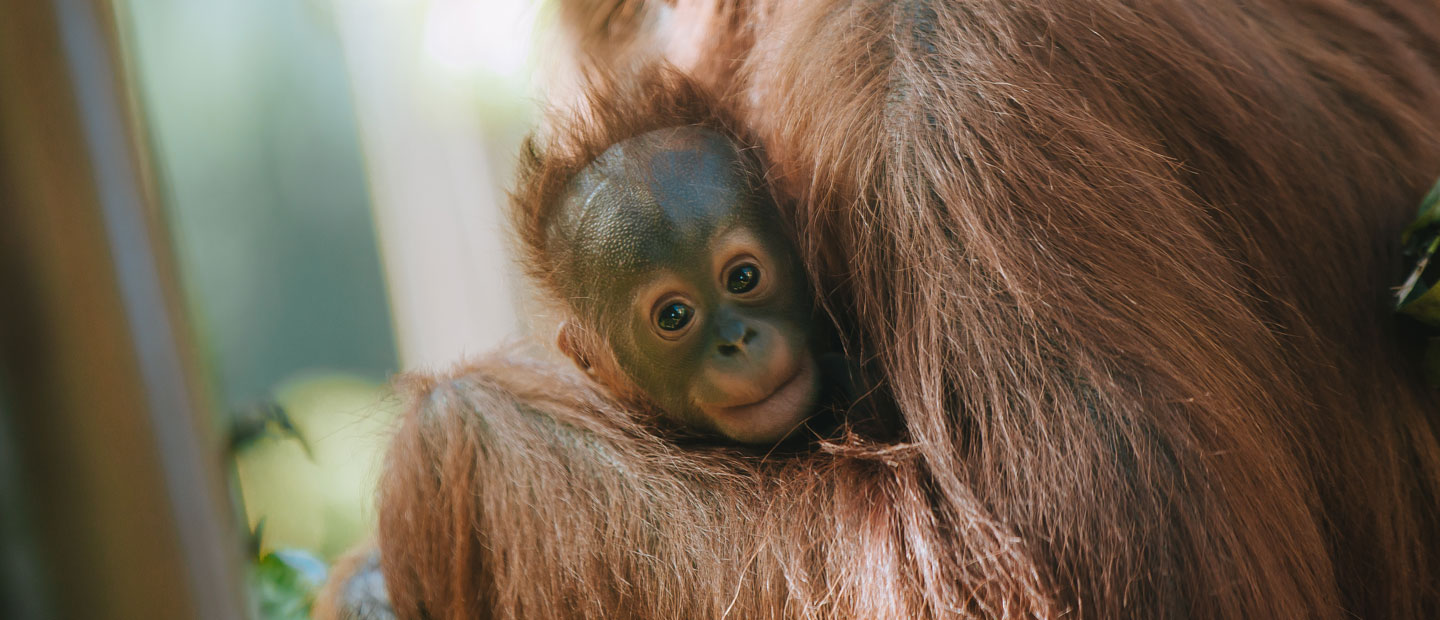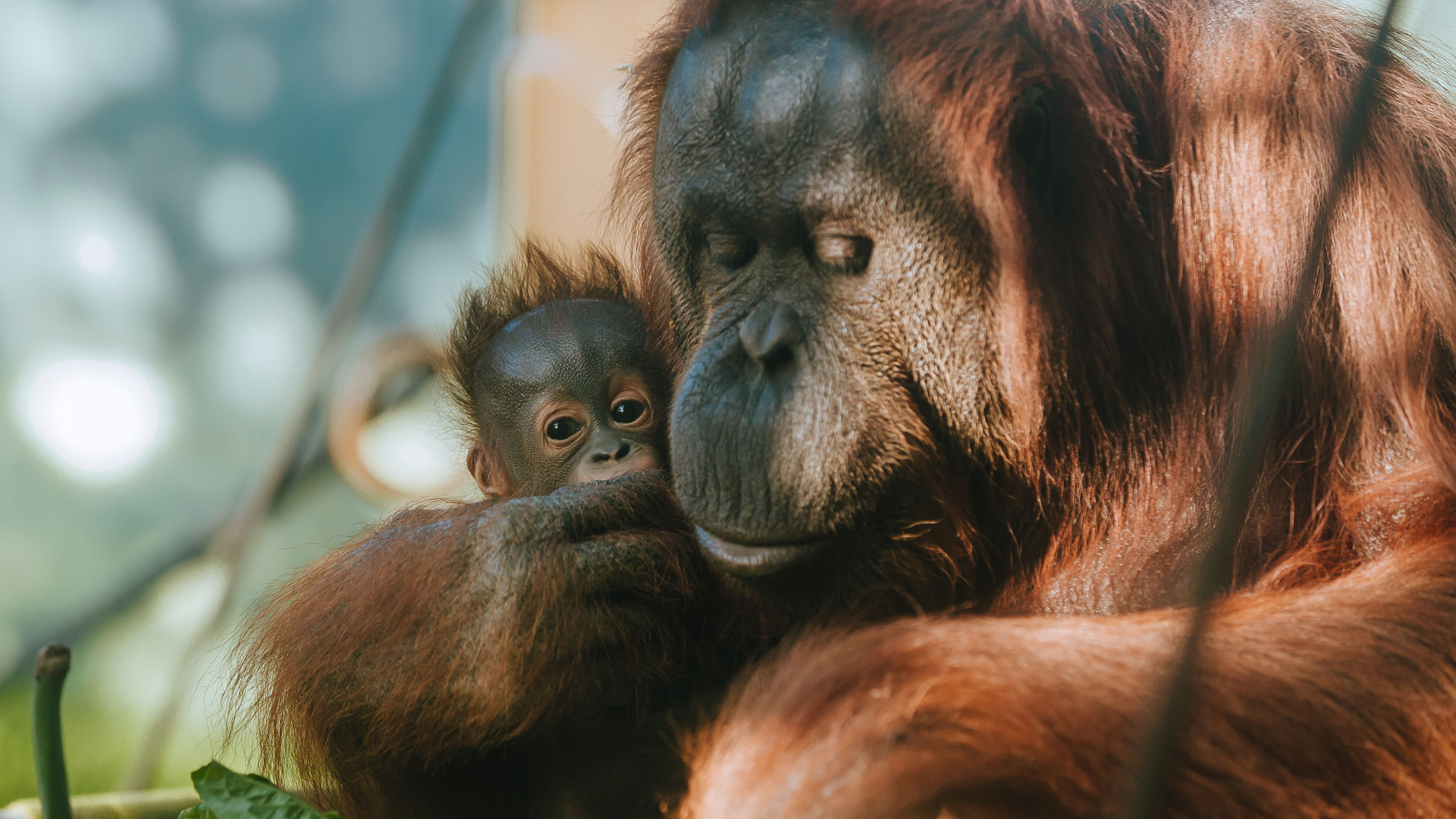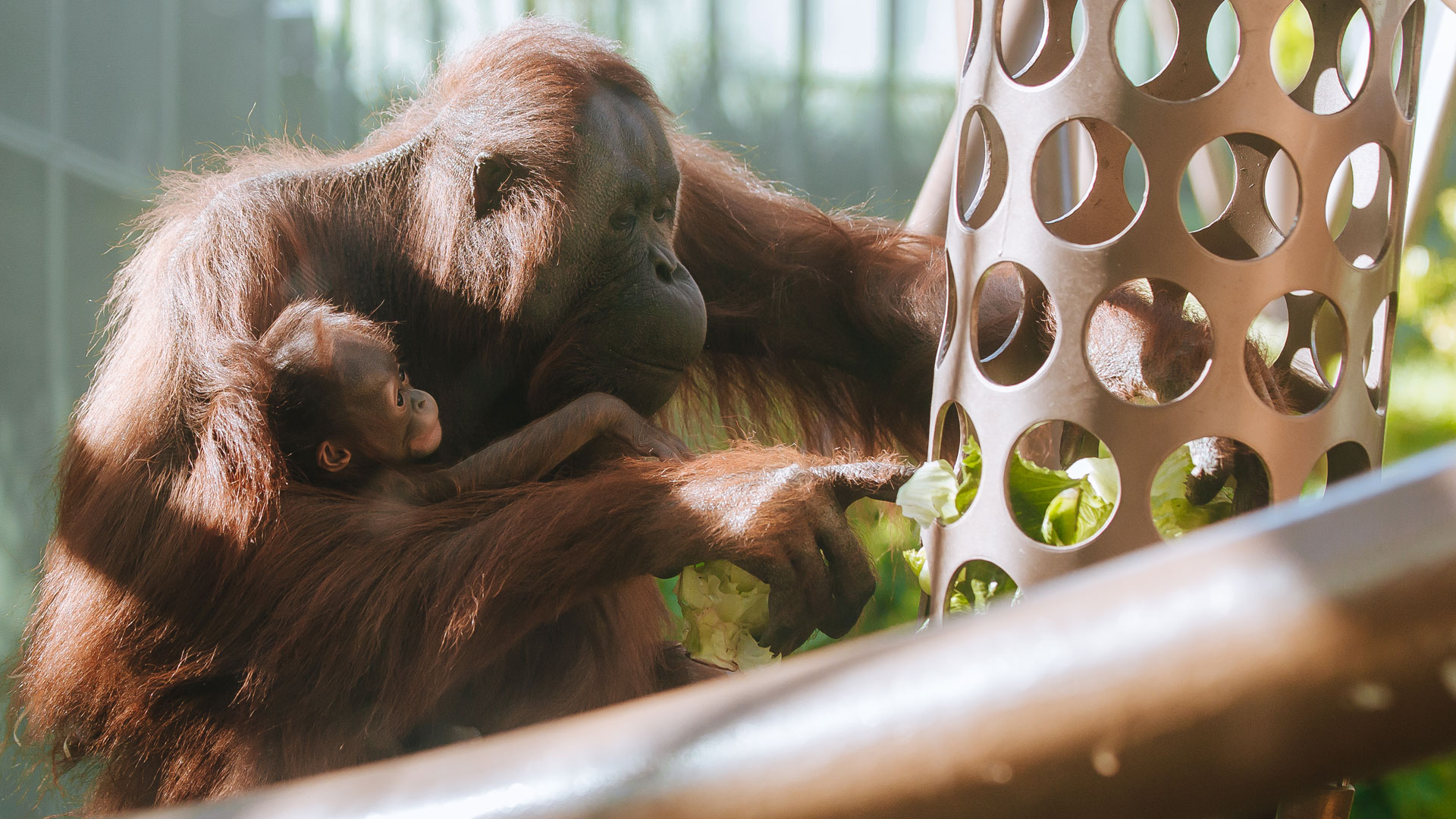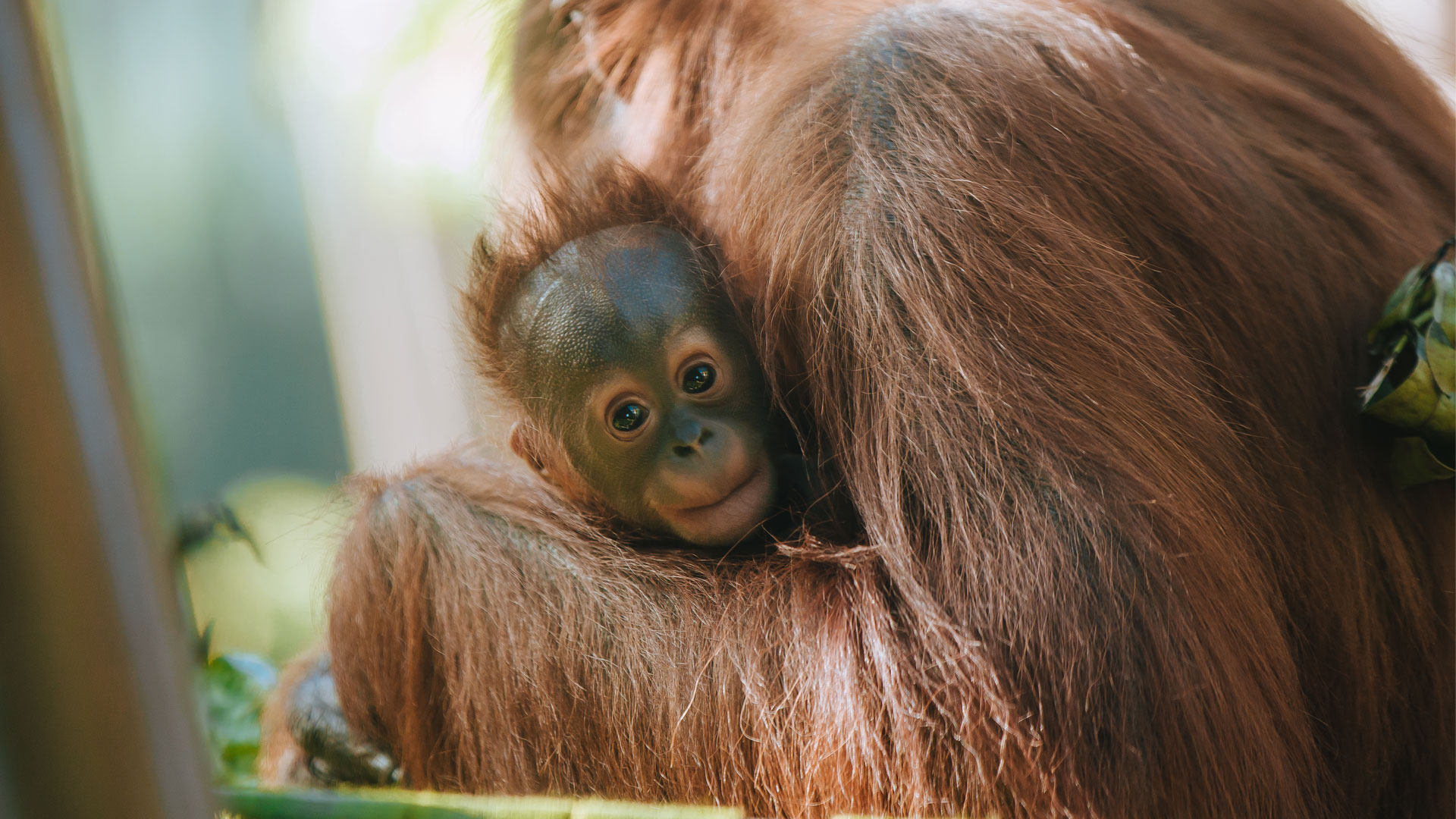Bahmi is now also showing a keen interest in what Melur is eating and started to sample little bits of mashed pumpkin and greens like lettuce and kale, but his mother’s milk is his main sustenance. Incredibly, orangutans nurse their young longer than any other primate – up to eight years, during which time they learn all they need to know, including how to gather and process an extraordinary number of different foods.
One of their favoured foods is the fruit of the durian tree – a fruit crop that is key to the livelihoods of many local villagers living along the forest edge in close proximity to orangutan habitat.
Helping to mitigate human-orangutan conflict during the durian season (June to August) is one of the many roles of the dedicated rangers from the Sumatran Ranger Project (SRP) – a project the Zoo supports with the help of you, our visitors.
“The rangers spend a lot of time helping the community to protect the trees, using a range of different methods - from putting collars around the trees to using different noise deterrents, which are proving really successful. They are also providing locals with cell phones so that they can contact the rangers for direct assistance if an orangutan is in a community owned durian tree,” says the Zoo’s deputy curator of mammals, Amy Robbins, who founded SRP in 2016. This means orangutans can be encouraged back to the forest safely by the rangers rather than risk reprisal attacks from frustrated durian owners.





